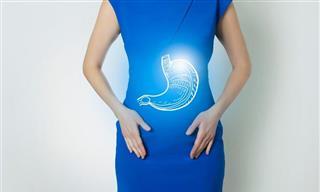In a short time, my partner and I turned to artificial sweeteners to satisfy our sweet tooth, whether it was in food or drinks. However, we soon noticed a few changes in our everyday routine. We felt the urge to consume more sweet products throughout the day, which led to weight gain. Additionally, if we refrained from consuming substitutes for hours, we felt a strong need for them, almost like an addiction. These unpleasant side effects kept recurring, and we realized that we needed to change our approach. We decided to cut back on sugar substitutes and incorporate natural sugar from fruits into our diet. Though it was challenging initially, the results were incredible. We now consume white sugar in moderation, and the change has been significant.
If you are an individual who is also addicted to using artificial sweeteners, it is highly recommended that you go through my personal experience and learn how your overall health can significantly improve if you decide to reduce or completely stop using sugar substitutes. Here are eight changes that will occur in your body if you quit consuming artificial sweeteners. Firstly, your taste buds will return to their normal functioning.
8 things that will happen when you quit sweeteners
1. Your taste buds will return to normal
Manufacturers of artificial sweeteners often try to replicate the taste of sugar, resulting in sweeteners that are excessively sweet, up to twice the sweetness of sugar. This leads to confusion in our taste buds and a demand for higher levels of sweetness, causing us to require more sweeteners to satisfy our cravings. However, if we stop consuming these substitutes, our taste buds will gradually adjust to normal levels of sweetness, reducing our daily need for sweet foods. Additionally, quitting artificial sweeteners can improve bowel activity.
2. Your bowels will work better
One of the most problematic effects of artificial sweeteners on the body, according to scientists and researchers, is the way they change the microbiome (the set of microbes in our body) and mainly cause the development of microbes and bacteria in the intestinal area that leads to obesity. In a study conducted in collaboration between researchers from the Weizmann Institute and Tel Aviv University, it was found that the introduction of artificial sweeteners into the stomachs of mice led to an increase in the level of development of bacterial strains that cause the conversion of energy accumulated from food into fat cells. Scientists hypothesize that the human stomach works in a similar way: the more artificial sweeteners you consume, the more bacteria will develop in your stomach that cause abnormal bowel activity and obesity, so it is reasonable to assume that stopping the consumption of artificial sweeteners will reduce the level of intestinal bacteria that cause this effect.

3. The sugar levels in your body will balance
Artificial sweeteners can deceive the body by signaling that the necessary sugar is on its way, causing an excess of insulin secretion into the bloodstream. As per experts, individuals who consume artificial sweeteners experience a 20% increase in insulin levels compared to those who do not consume them. This increased insulin secretion is stored as fat in the body's cells, resulting in the creation of unused energy reserves, making us hungrier and craving more sweet dishes. It may ultimately lead to the development of diabetes, as a 2009 study revealed that the consumption of sugar substitute drinks raises the likelihood of developing type 2 diabetes by 67%.
4. You will lose weight
Yes, we also believed that if we consumed sugar substitutes instead of white sugar we could reduce our daily calorie intake and thus lose weight, but it turned out to us that this was a misconception. Many studies conducted on the subject have shown that artificial sugar substitutes have the opposite effect on the brain, which ultimately causes us to consume more calories and gain weight. In a study published in the magazine "Psychology and Behavior," it was found that the consumption of artificial sweeteners increases the drive and need in our brain for carbohydrates, starches and various sweets. In another study, published in the American medical magazine JAMA, it was found that infants whose infants drank drinks with artificial sweeteners on a daily basis during their pregnancy were at risk of being overweight during their lifetime, in contrast to infants whose infants did not consume artificial sweeteners at all.

5. The amount of genetically modified materials you consume will decrease significantly
Artificial sweeteners have been linked to weight gain and type 2 diabetes, and they also contain genetically modified compounds that enter the body through food. Typically, natural raw materials like corn, soybeans, and sugar beets are used to make these sweeteners, but they are altered genetically to be suitable for the final product. These substances have long-term negative effects on the body's health, and it is best to avoid consuming them altogether. Additionally, the consumption of these sweeteners does not contribute to the strengthening of bone resistance in the body.
6. Your bones will get stronger
According to a 2014 study, the consumption of artificial sweeteners, especially those found in sugary drinks, can be harmful to bone health, increasing the risk of hip fractures in postmenopausal women who consume one glass of sugary drink per day by 14%. Another study found that older women who consume sugary drinks and sweeteners have a lower bone density in the thigh area compared to those who avoid them. Although the exact reason for this is unclear, it is recommended to stop consuming these substances to strengthen bones and prevent potential problems.
 Go to BabaMail
Go to BabaMail























































